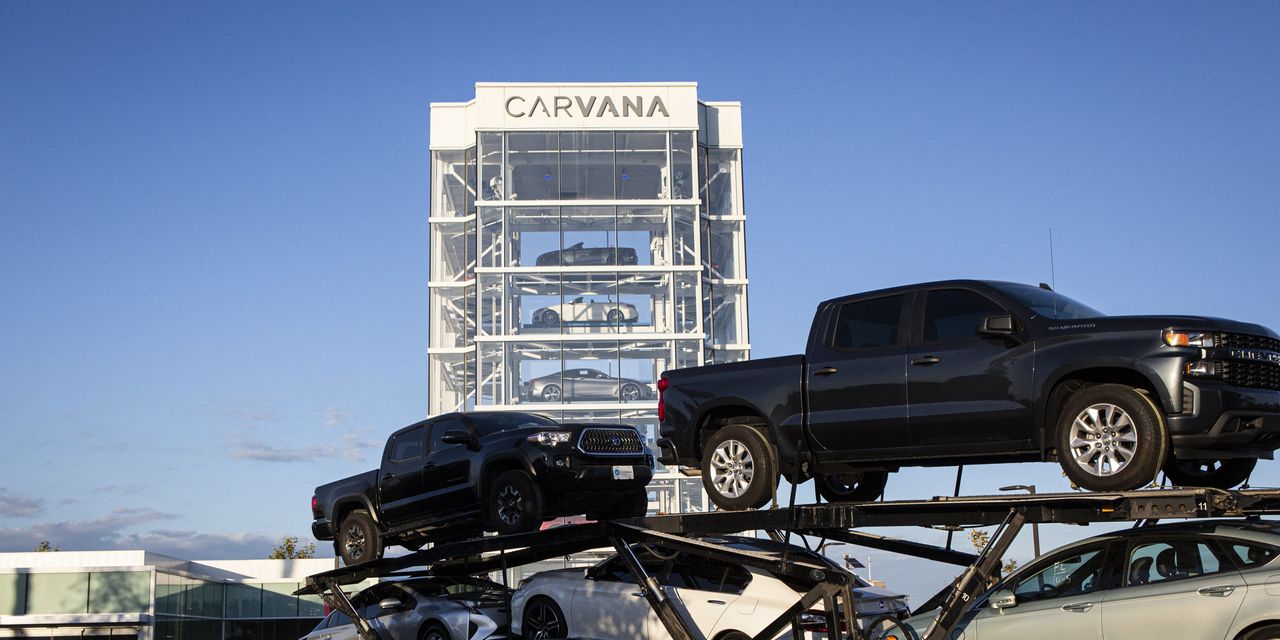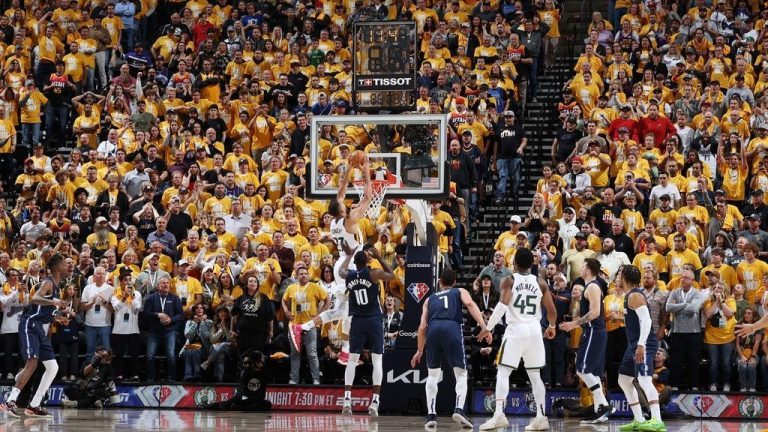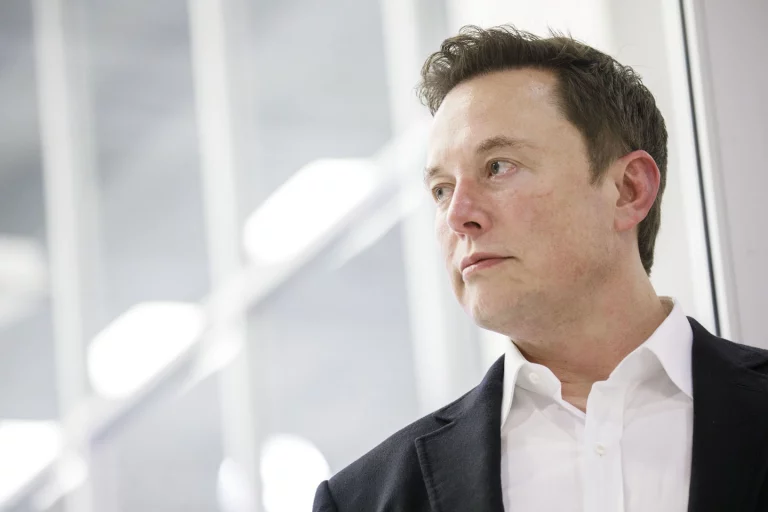WSJ News Exclusive | Carvana, once market darling, forced to turn to Apollo for cash
carvana Co.
CVNA -1.95%
Financial problems spread to debt markets this week when the online used-car dealership struggled to sell bonds and was forced to turn to Apollo Global Management Inc.
APO 2.67%
for $1.6 billion to salvage the case.
The giant investment firm has agreed to buy about half of the $3.275 billion in bonds Carvana is issuing to buy the ADESA US car auction network, people familiar with the matter said. Carvana struggled to attract investors after a disappointing first-quarter earnings report and stock selloff.
Apollo’s intervention highlights the growing influence of private debt and equity firms that finance large swathes of the US economy.
Shares of Carvana surged during the pandemic but have fallen over the past eight months as used car prices fell and investors worried about the company’s continued losses. ADESA needed to accelerate its growth and Carvana hired JPMorgan Chase JPM 1.42%
& Co. to raise billions of dollars in debt and equity to pay for the purchase and subsequent integration.
The number of semiconductors in a modern car, from the ignition to the braking system, can exceed a thousand. As the global chip shortage drags on, automakers from General Motors to Tesla are being forced to adjust production and rethink the entire supply chain. Illustration/Video: Sharon Shi
Funding ran into headwinds last week when the company reported a more than six-fold increase in its net losses for the first quarter of 2022 from a year earlier. The company was one of the biggest losers in the tech stock selloff, which was driven by rising interest rates and worries about a recession.
Carvana blamed a mix of tough economic conditions — rising interest rates, rising gas prices, inflation-weary consumers — for its first-ever quarterly retail sales drop. He also admitted to investors that the constant pressure to continue his rapid expansion has played an outsized role in his priorities, and he pledged to reduce costs and improve efficiency.
The deal with Apollo is a recognition that filling the hole in its balance sheet had taken precedence over growth. The onerous interest rate on debt could make it difficult for the company to invest in growth. Carvana has been burning cash since its founding 10 years ago.
Carvana shares have fallen about 30% in recent weeks and bond prices have also fallen, pushing up the yield that bond investors have been demanding to lend the company more money. Bond yields rise when prices fall. Carvana on Monday disclosed plans to issue $2.275 billion in bonds and $1 billion in preferred stock for the acquisition of ADESA.
Chief Executive Ernie Garcia III and his father, Ernie Garcia II, participated in a new common stock issue of about $1.2 billion to boost cash levels. Apollo privately pledged to buy $600 million of preferred stock, but JPMorgan struggled to find enough buyers for the bonds, said fund managers who considered the deal.
On Tuesday, the bond deal’s offset yield was above 10.5%, a level that could have forced JPMorgan to waive some or all of its funding fees, fund managers said.
Apollo, which has invested in Carvana stock and debt for years, offered an alternative: Carvana would abandon the preferred stock sale and issue $3.3 billion in 10.25% bonds, backed by a $1.6 billion order from Apollo. This yield is well above the average for most junk bonds.
The revised deal came with a twist, in which Carvana would be barred from prepaying new debt for about five years, roughly double the normal period for junk bonds. Apollo is expected to earn about 1.6 times its money if the bonds are redeemed. He would have made about 1.3 times his money on preferred stock, said one of the people familiar with the matter.
These big checks became common as private money managers raised sums of money to research the first big business ideas. The funds have provided giant bailout loans to companies like Airbnb Inc.
and Carnival Corp.
at the height of the coronavirus pandemic.
Apollo manages about half a trillion dollars and made a similar $1.5 billion preferred stock investment in Hertz Global Holdings Inc.
in 2021 to help bring the rental car company out of bankruptcy. The Hertz deal has paid off well, but Carvana’s future is uncertain at this time.
Moody’s Investors Service downgraded Carvana’s credit rating this week to triple-C, one of the lowest rungs on the junk debt rating scale, citing continued lack of profitability, negative cash flow and corporate governance risk.
Rating firm S&P Global said on Wednesday that replacing preferred stock with debt will lead to higher interest costs that will put pressure on the company’s cash flow. S&P estimated that the additional capital would help the company cover about two years of cash burn.
“Tech companies can offer excess return, but investors should pay attention to the quality and stability of cash flows,” said Scott Giardina, managing director of FS Investments. “Technology business models are typically asset-light, and bankruptcy recoveries will tend to be lower than more traditional asset-based businesses.”
Carvana, which went public in 2017, burned through cash and relied heavily on bond investors to fund its operations, much like tech companies such as Netflix. Inc.
and Uber Technologies Inc.
—Ben Foldy contributed to this article.
Write to Matt Wirz at [email protected] and Kristin Broughton at [email protected]
Copyright ©2022 Dow Jones & Company, Inc. All rights reserved. 87990cbe856818d5eddac44c7b1cdeb8
#WSJ #News #Exclusive #Carvana #market #darling #forced #turn #Apollo #cash







